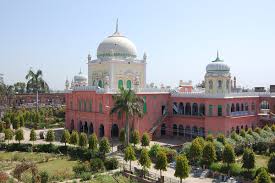Understanding Deoband: Its Importance and Legacy

Introduction
Deoband, a small town in the Saharanpur district of Uttar Pradesh, holds a significant place in the history of Islamic education in India. Founded in the late 19th century, it is best known for the Darul Uloom Deoband, an important Islamic seminary that has shaped Islamic thought and education for generations. The relevance of Deoband extends beyond its geographical measure; it has defined movements, ideologies, and has had impacts on political and social spheres among South Asian Muslim communities.
Historical Background
Established in 1866, Darul Uloom Deoband aimed to promote a form of Islamic scholarship that embraced traditional education while resisting colonial influence. It was a period marked by a resurgence of Islamic identity amidst British colonial rule. Scholars like Sayyid Ahmad Khan and later Muhammad Qasim Nanotwi were influential figures in its development, emphasizing the need for a reformist narrative that was rooted in the Quran and Hadith.
Significance of Deoband Today
In recent years, Deoband has gained notoriety not only as a religious center but also as a place for socio-political activism. The founding of the Jamiat Ulema-e-Hind, a platform for Islamic scholars to promote political awareness, is directly linked to the Deobandi movement’s ideologies. The seminary’s roots have now branched into various global networks, with Deobandi scholars playing critical roles in many Islamic educational institutions worldwide.
Current Events
Amid global socio-political changes and challenges, Deoband continues to be a focal point for discussion on religious identity and modernity. Recent discussions and seminars held at Darul Uloom Deoband address contemporary issues faced by Muslims in India and abroad, focusing on legal rights, women’s empowerment, and interfaith dialogue. Furthermore, in light of rising extremism and the need for peaceful coexistence, the teachings from Deoband are often cited to promote a balanced and moderate view of Islam.
Conclusion
Deoband remains a beacon of traditional Islamic scholarship while navigating the complexities of modern society. The legacy of the Deobandi movement is not just about theological education, but also about engagement with pressing social issues facing the Muslim community today. As India continues to evolve, the teachings and influence of Deoband could shape the future narratives of Islam in the region, reinforcing the connection between faith and civic responsibility.









